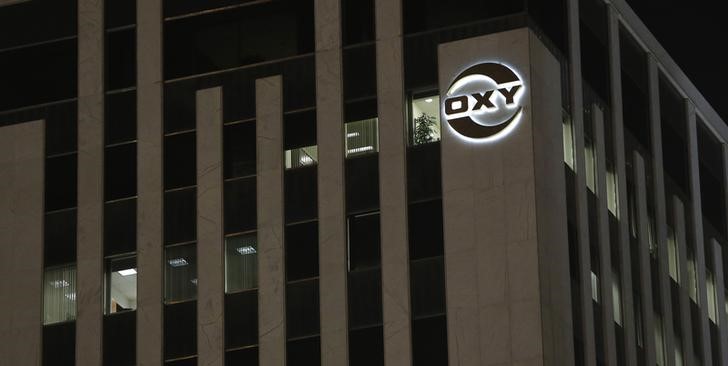By Anna Driver and Ernest Scheyder
HOUSTON/WILLISTON, N.D. (Reuters) - ConocoPhillips (N:COP) and Occidental Petroleum Corp (N:OXY) on Thursday slashed exploration spending plans for this year, as the third- and fourth-largest U.S. oil companies attempt to cope with a steep slide in crude prices.
The cuts follow similar steps by rival Hess Corp (N:HES) earlier this week while Royal Dutch Shell (L:RDSa), Europe's largest oil company, said on Thursday it would reduce its spending the next three years by $15 billion.
Rising supplies of oil, from sources including North American shale basins, and weakening demand have flooded global markets with crude, sending prices plummeting almost 60 percent since June. On Thursday, crude traded in New York at $43.80 per barrel, much lower than many oil and gas projects require to make money.
In response to the price collapse, oil and gas companies have made drastic cuts to budgets, idled drilling rigs and in some cases, cut jobs.
For a factbox on capex cuts, click on:
Conoco, which said in December it would cut 2015 spending by 20 percent to $13.5 billion, now expects spending to be scaled back by a further 15 percent to $11.5 billion. Occidental said it would slash its capital budget by 33 percent to $5.8 billion this year.
"There's a lot of debate right now about the duration of the current low oil prices. But we're assuming that they will stay low for 2015 and we're taking decisive actions accordingly," Ryan Lance, Conoco's CEO, said on a conference call.
U.S. PRODUCTION DIP?
Conoco's second trimming of its 2015 capex budget raised the specter that others in the industry could further reduce their own spending, potentially reinforcing a dip in U.S. production that the U.S. Energy Information Administration forecasts to occur this summer.
That would mark a sharp turnabout for the U.S. oil industry, which has enjoyed five years of blistering output growth thanks to the shale oil boom.
Chevron Corp (N:CVX), the second-largest U.S. oil producer, has yet to unveil 2015 spending and may do so on Friday when it reports quarterly results.
Conoco said it would defer drilling some U.S. onshore exploration programs and delay spending on some major projects. Occidental said it will pull back spending in North Dakota's Bakken Shale and in Bahrain.
"We think it is imprudent to accelerate some of these opportunities in the current low product price environment," Occidental Chief Executive Stephen Chazen told investors.
Analysts at Houston-based investment bank Simmons & Co said Conoco's plan to further reduce capital spending is the right move to make, in this "challenging environment."
Neither Conoco nor Occidental are running out of cash, despite the low prices, though. Indeed, Occidental last quarter spent $1.3 billion on 100,000 acres in the Permian, a prolific shale formation in Texas. Chazen said the deal was to better connect existing acreage and boost drilling efficiencies.
Both companies also expect oil and gas output to rise this year, although possibly at a slower rate. Conoco now expects oil and gas output to grow 2 percent to 3 percent. That compares with a previous forecast for growth of 3 percent.
Occidental said its production will ramp up 6 percent to 10 percent, helped by wells in the Permian Basin.
Excluding one-time items, both companies reported earnings that topped analyst expectations. Conoco was helped by better-than-expected results in its Asia Pacific and Middle East segment, while Occidental's adjusted earnings were lifted by its chemicals business.
On a net basis, both companies reported a quarterly loss.
Conoco had a fourth-quarter loss of $39 million, or 3 cents per share, compared with a profit of $2.5 billion, or $2.00 a per share. One time-items including the termination of the Freeport LNG agreement.
Occidental reported a fourth-quarter net loss of $3.41 billion, or $4.41 per share. It earned an income of $1.6 billion, or $2.04 a share, a year earlier.

In afternoon trading Thursday, shares of Conoco fell about 1 percent to $61.90 per share, while shares of Oxy rose 1 percent to $77.30.